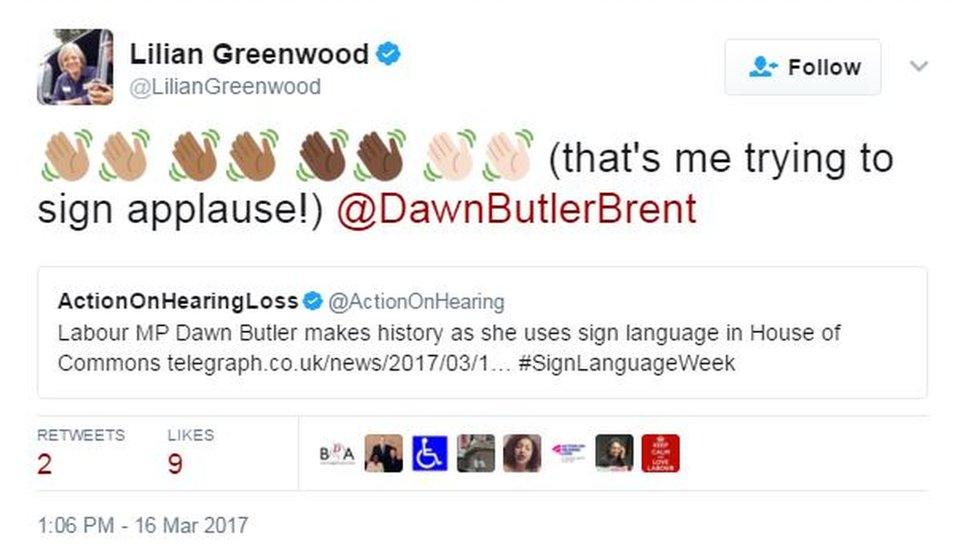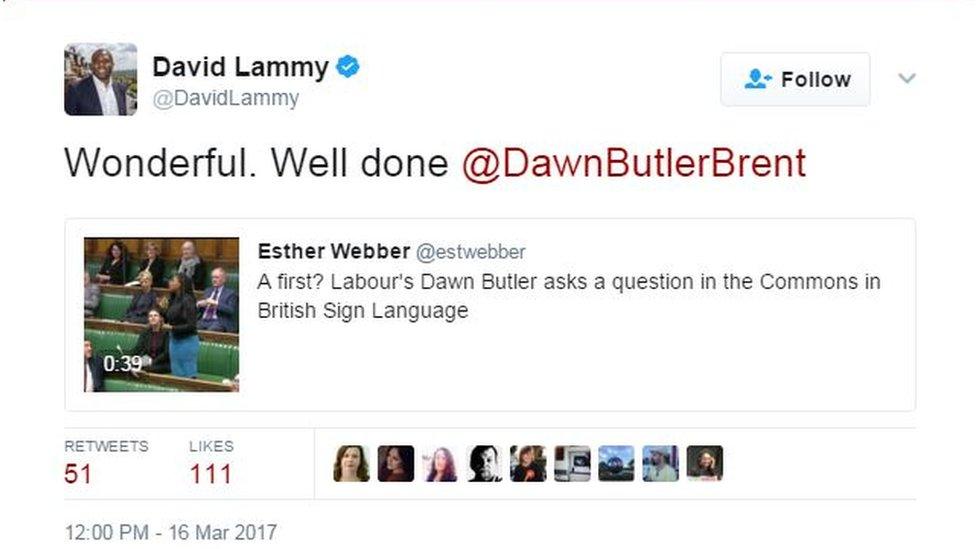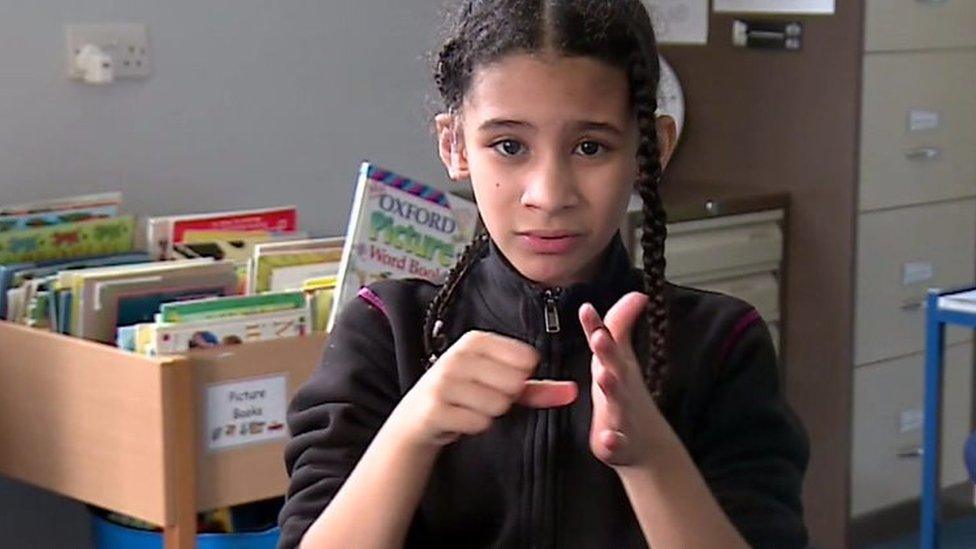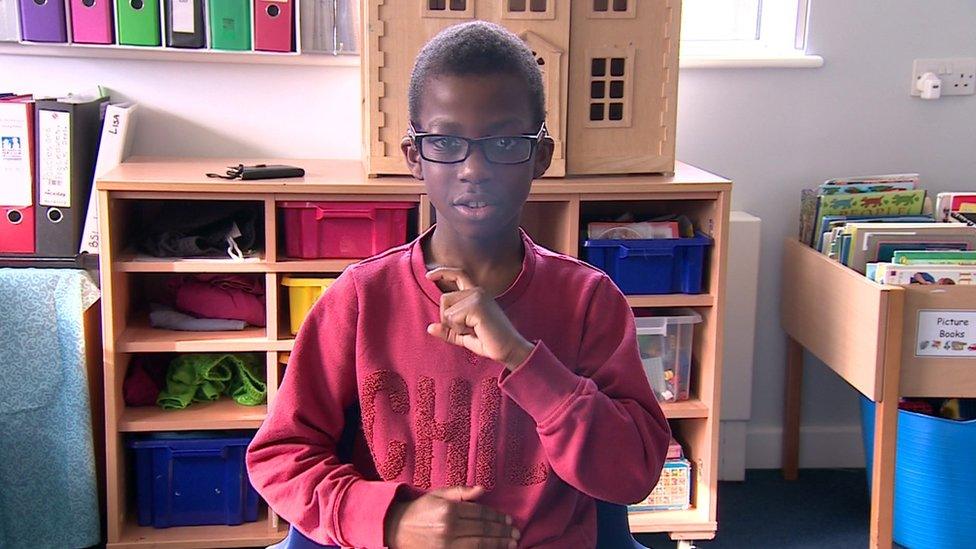MP Dawn Butler praised for using sign language in Commons
- Published
Dawn Butler MP signs her question in the Commons
Labour MP Dawn Butler has been praised for using sign language to ask a question in the House of Commons about giving it legal status.
She spoke as well as signed when she addressed the Chamber saying it was time British Sign Language (BSL) was given further protection.
The MP, who has completed a signing course, was cheered by fellow MPs.
A Commons spokesman said it was believed to be the first time sign language was used to ask a question.
Ms Butler, MP for Brent Central, signed during the business statement in the Commons, and also said: "I would like to sign my question.
"Will the minister agree the 18 March marks the 14th anniversary since the UK government recognised British Sign Language?
"Will the minister agree it's time to bring and give British Sign Language legal status like other recognised languages?"
It is not the first time an MP has used sign language in the Commons. Labour's Tom Levitt signed, as has liberal democrat Sir Malcolm Bruce.
'Lots of respect'
Ms Butler, who is an ambassador for Brent and Harrow United Deaf Club, was praised by fellow MPs and others on social media.
Twitter user @Jonathan93 said, external: "From a native user (deaf parents), thank you for using BSL in the HoC and in doing so raising awareness in the UK."
Luke Hewerdine wrote, external: "Fantastic job signing your question! Glad to see #BSL taken seriously!"
Mark Anthony said , externalhe hoped Ms Butler was a "sign of the times", adding "lots of respect for your inclusiveness".
Worsley and Eccles South Labour MP Barbara Keeley said Ms Butler's use of sign language was "excellent" while Labour MP for Tottenham David Lammy called it "wonderful".


BSL was recognised as a minority language by the government in 2003 but it currently does not have any legal protection.
If it was awarded legal status, it would be placed on a par with languages like Welsh - allowing it to be promoted and protected.
Replying to Ms Butler's question, Commons Leader David Lidington said: "You have very eloquently reminded us of the importance of British Sign Language to a number of our fellow citizens who live with deafness or severe hearing impairment."
He said the Department for Work and Pensions had received "hundreds" of submissions as part of a review into the provision of signing services which will publish its conclusions "in due course".
Mr Lidington went on to say that the Department for Education was planning to accept BSL as an alternative qualification to English functional skills for people on apprenticeships.
The British Deaf Association said it was "delighted" Ms Butler had requested for Parliament to give the language legal status.
"We very much hope that the House will take note and consider Ms Butler's early day motion as a priority to ensure that deaf people are part of the UK's determination to be a leader in business and trade," it said.
A House of Commons spokesman said "as far as records indicate" it is the first time sign language has been used to ask a question in the Chamber.
- Published15 March 2017

- Published15 March 2017
